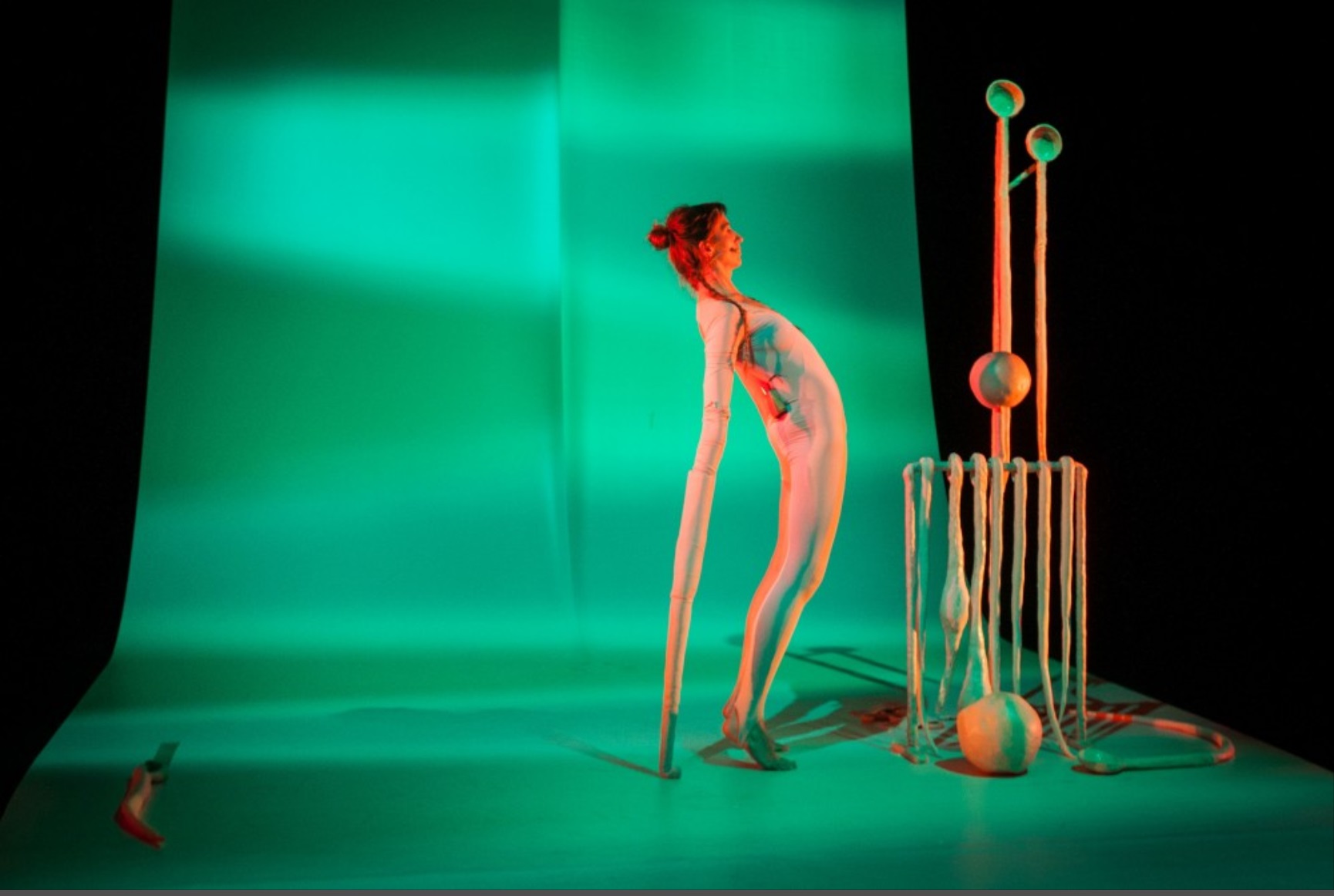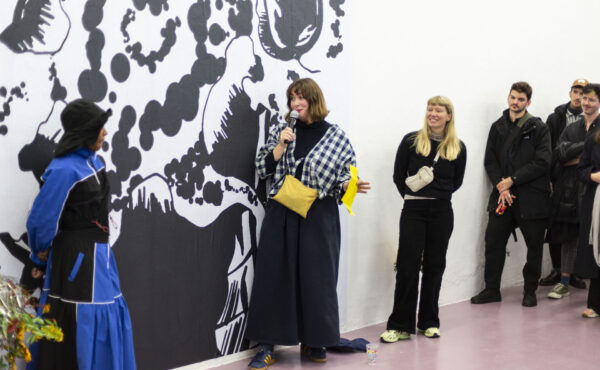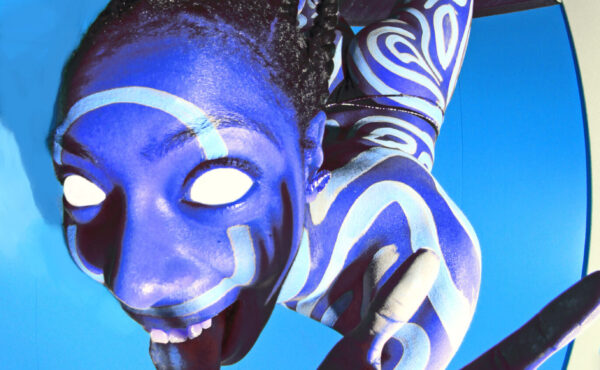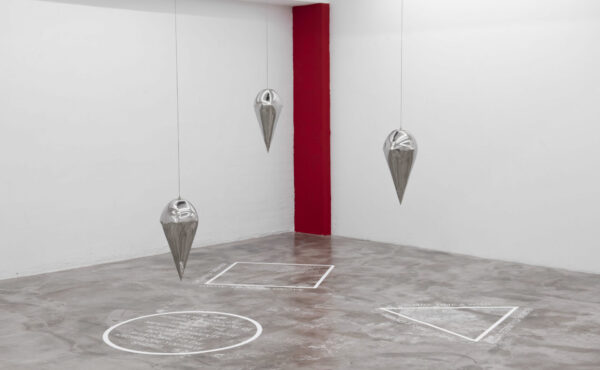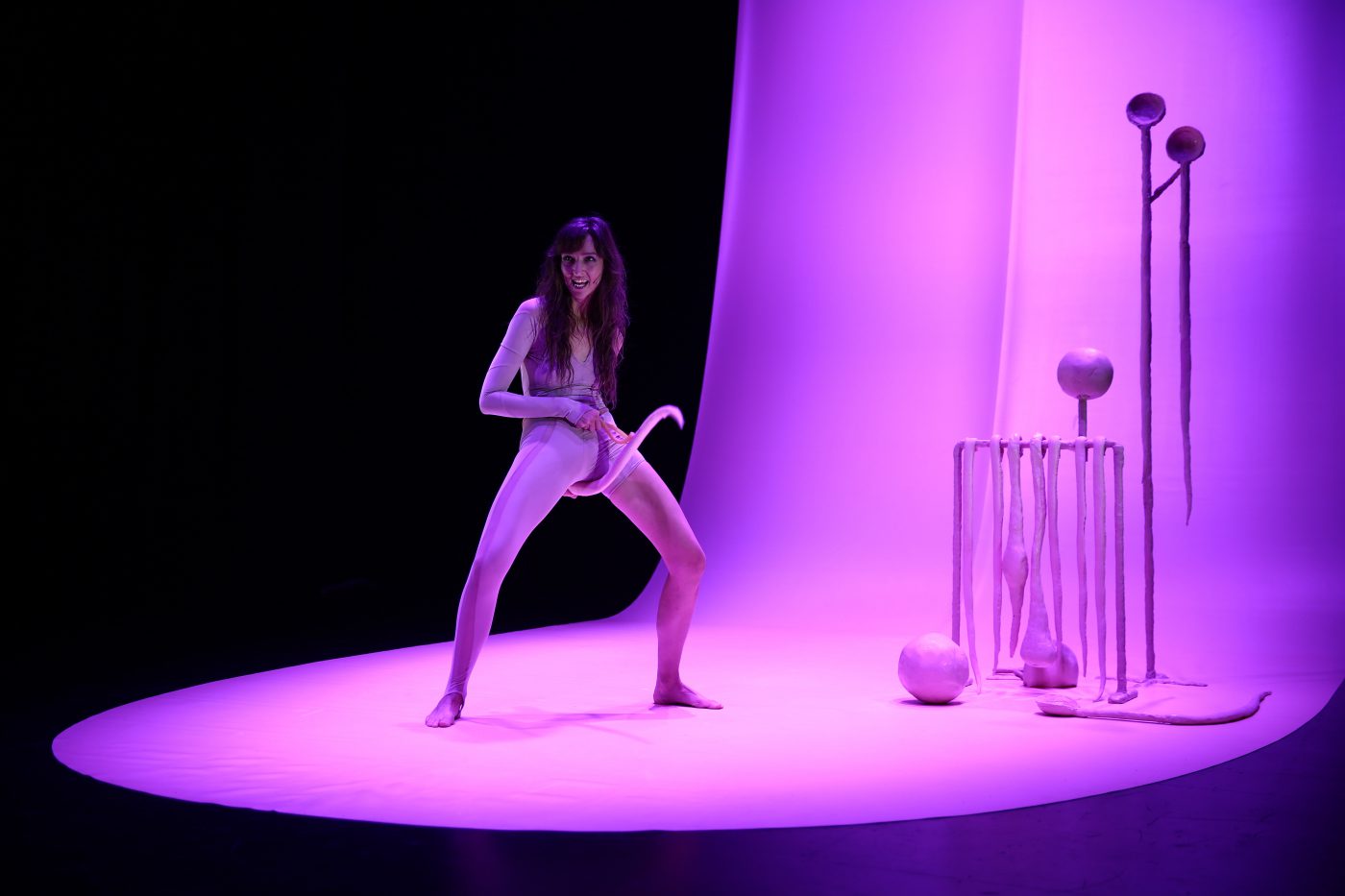
Ieva Misevičiūtė, Tongue PhD
“In life moments arrive where the mouth becomes tongueless and the eyes become tongue!”
Mehmet Murat Ildan
The tongue is a mysterious part of our body. The large bundle of muscles is responsible for taste, enables us to speak and plays a major role in our sexuality. Since the tongue has no supporting skeletal structure, it’s an example of a muscular hydrostat. Like an octopus arm it’s supple, agile, flexible and can exult huge ranges of motion and shape, while preserving its volume. It can bend, twist, roll, stick out, and suck. ‘When was the last time your tongue was tired?‘, asks Maureen Stone, researcher from the University of Maryland, ‘if you don’t have any disorders, the answer is probably never.‘
In Franz Kafka’s novel The Metamorphosis, the protagonist, travelling salesman Gregor Samsa, wakes up one day to find that he has turned into an insect-like creature. Can you imagine, waking up, to a body which has been transformed into a tongue-like being, or became a tongue itself? Of course, this is physically impossible, but the thought came to mind while I was watching the latest solo production of Lithanian artist Ieva Misevičiūtė Tongue PhD, staged in the end of September at The Kitchen in New York City.
The scenography of the performance consisted of a big, open mouth, like the inside of a giant’s throat. The artist’s costume (designed by threeASFOUR) merged with the color of her skin and the shade of the tongue-shaped carpet on the floor. On the right were several surreal-mold sculptures[1], which were also used during the performance as props. Gradually, bland pinkish flesh colors and diffused lighting changed into a theater of contrasts and amebic forms.
This eclectic ‘defense’, originally written in 2015, was further developed in 2016 during a residency with the commissioning support of the Jerome Foundation and presented as part of Corpus, network for performance practice at The Kitchen, one of New York City’s oldest non-profit art spaces. The press release read: Ieva Misevičiūtė, Master in Political Science, Master in Cultural Analysis, will finally get her PhD in one hour, right in front of you, granted by her tongue!. The script, co-written with Michael Portnoy, New York-based artist with a background in dance and stand-up comedy, further informed: A dissertation presented in liquid fulfillment of the requirements for the degree of Doctor Tongue. Approved November 2016. International Cephalopod Academy.
According to the stated time – in one hour -, the ‘dissertation’ was about to be validated, so as the audience we were watching something that didn’t happen yet. The “visual thesis” was supposed to consist of twelve chapters, while the paper synopsis presented just eight. It truly doesn’t matter, the artist explained in the introduction, as one can read it from the beginning to the end, or the other way around, or all parts at once. It may sound quite confusing, but regardless of how many there were, each chapter constituted a different metaphorical approach to the matter of tongue. ‘When I am making a piece, I typically do character studies of a few animals, some insects, some objects and sometimes people. All these elements end up morphing together and creating imaginary beasts – half objects, half human, half insect, half slime’, writes Ieva on her website. For the Tongue Phd, Ieva claimed to have used character studies of a deer, ameba, hyenas, Freddy Mercury, Michael Jackson and an octopus arm. Surprisingly, these different elements together made sense in the narrative of the piece.
The following line from the monologue, muscle-moving-economy vs. the economy of bones, could be seen as the motto of this performance. The body put in motion became like a tongue. Different forms of fluid movement easily morphed into each other – ranging from aggressive disco, through dangling like a tongue, to Butoh dance – carrying an equally fluid message. Comedy merged with tragedy and vice versa.
Ieva’s unique elastic physiognomy and acrobatic skills strewn with flickering stroboscopic lights increased the effect of watching something unnatural, almost non-human. Her body took on weird forms, being molded like a sculpture, and twigged like an ascarid. She was everything at once: an actor, a scenography, a prop, a dancer, a tongue. At some point, Ieva took one of the sculptures and assembled it as a prosthesis for her hand. She leant on it with her whole weight, which required a great effort. She was breathing heavily. There was something shamanistic about it. The tongue is a surrogate, a bridge between madness and intelligence. It bares the instinctual memory of an animal, but it’s also a tool with which we express our humanness. The impossibility of speaking, and thus communicating – arouses a sense of humiliation.
During the performance the physical exhaustion of the body gradually increased. Although the last scene was somewhat more static and quiet, playing around the aesthetic of Butoh dance, the performance ended quite abruptly: the tired body resembled a drooping tongue. It left the audience’s aesthetic sense unsatisfied, with a feeling that something was missing, like a break-off in the middle of a sentence. But, it also offered a good reason for us to use our own tongues in order to express opinions and impressions, and share them with others. Speech is, after all, one of the survival techniques.
Ieva Misevičiūtė, Tongue PhD, The Kitchen, New York, 23 & 24 September 2016
[1] These sculptures were exhibited early this year (January 24th – April 4th) at the Sculpture Center in Long Island City, New York under the title “Tongue PhD (hardcover)”, as part of the group show “The Eccentrics”
CREDITS concept, text, choreography and scenography Ieva Miseviciutè | Artistic advice, Butoh training and movement development Vangeline | Light design Eugenijus Sabaliauskas, Andrius Stasiulis | Sound Gediminas Žygus, Sebastian Butt, Charlie Murray | Costume threeASFOUR | Script co-writing Michael Portnoy| | inner world integrity preservation Jessica Mitrani | Scenography development Bram Coeman and BUDA, Kortijk | Production and curating Monika Lipšic and Maaike Gouwenberg Tongue PhD is commissioned and produced by CAC Vilnius and Playground (STUK Kunstencentrum & M-Museum, Leuven) as part of Corpus, network for performance practice. Corpus is Bulegoa z/b, CAC Vilnius, KW, If I Can’t Dance, Playground (STUK & M), and Tate Modern: www.corpus-network.org
Ieva Misevičiūtė is a New-York based Slow Loris, working in both visual arts and theater. Her practice combines physical theatre, dance, stand-up, Butoh, perverted academic language and sculptural work.
Misevičiūtė worked as a clown in the circus throughout her youth, has backgrounds in various movement and improvisation techniques; holds a research MA in Cultural Analysis and MA in Political Studies from the University of Amsterdam.
Weronika Trojanska
is an artist and art writer
